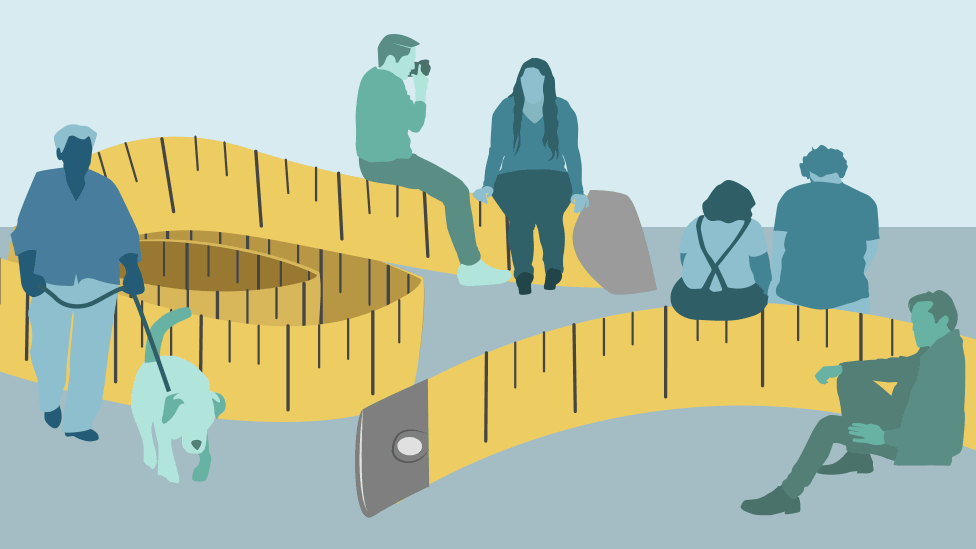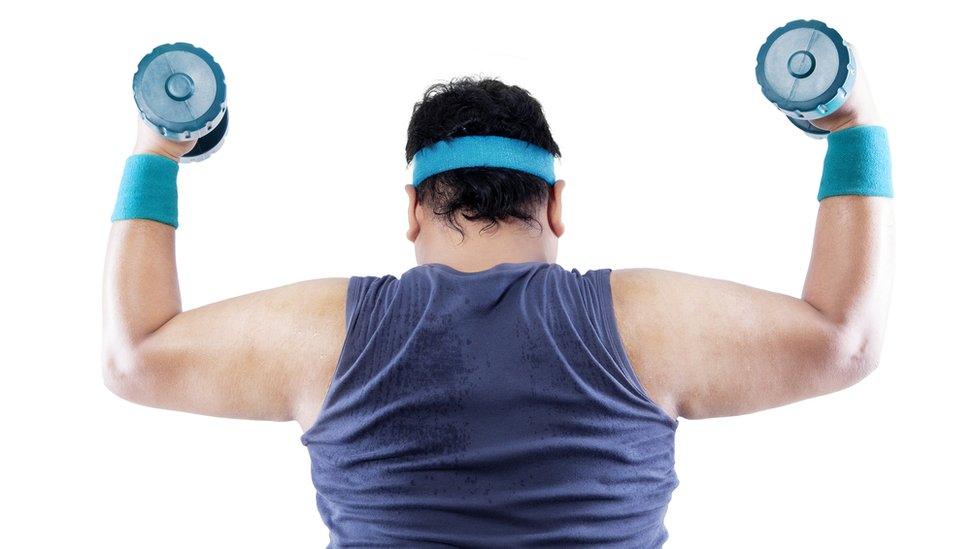Study casts doubt on 'healthy obesity'
- Published
- comments

Women who are overweight or obese but otherwise healthy are still at an increased risk of cardiovascular disease, a large study suggests.
The analysis tracked the health of 90,257 women in the US for up to 30 years.
Those with excess weight were likelier to have a stroke or heart attack, even if they had normal blood pressure and cholesterol and no diabetes, it found.
Researchers said it showed "healthy obesity is not a harmless condition".
Obesity affects almost all of the cardiovascular disease risk factors, such as high blood pressure, excess cholesterol and diabetes.
But some obese people do not appear to have these metabolic disorders, leading scientists to debate whether or not the excess weight actually raises their risk.
This new study found women who were overweight or obese (BMIs in excess of 25 and 30 respectively) but had none of these risk factors were 20% and 39% more likely to develop cardiovascular disease than women of a normal weight (BMI 18.5-24.9) who were metabolically healthy.
However, the authors said it showed an association rather than cause and effect, and was mainly in white women, meaning the findings cannot be generalised to other ethnic groups or men.
"Our large cohort study confirms that metabolically healthy obesity is not a harmless condition, and even women who remain free of metabolic diseases for decades face an increased risk of cardiovascular events," said Prof Matthias Schulze, from the German Institute of Human Nutrition Potsdam-Rehbruecke, who led the study.
Women who were a normal weight but metabolically unhealthy were around two-and-a-half times more likely to develop cardiovascular disease than women of the same weight who were metabolically healthy.
That risk was even greater in women who were overweight and obese, said the study, published in The Lancet Diabetes & Endocrinology journal, external.
Experts also found that the majority of metabolically healthy women developed either high blood pressure, excess cholesterol or diabetes as they got older, even if they were normal weight.
Fitness vs fatness
Prof Schulze added: "Our findings highlight the importance of preventing the development of metabolic diseases.
"They suggest that even individuals in good metabolic health may benefit from early behavioural management to improve their diet and increased physical activity in order to guard against progression to poor metabolic health."
Jeremy Pearson, associate medical director at the British Heart Foundation, added: "This large scale study confirms that obesity, even if unaccompanied by other warning signs, increases risk of cardiovascular disease in women."
However, Prof Carl Lavie, from the University of Queensland School of Medicine in New Orleans, who was not involved in the research, said he and colleagues had argued that "fitness is more important than fatness".
He noted that the study did not have precise data on the participants' physical activity and their cardio fitness.
He added: "It is prudent to remind ourselves that an ounce of prevention is better than a pound of cure."

BMI and obesity: Where are you on the UK fat scale?
Use this calculator to find out your own body mass index (BMI) and see how you compare with the rest of the nation. You will also get tips from health experts and useful links to information on how to improve your health.
If you can't see the calculator tap or click here., external

- Published24 April 2018

- Published15 August 2017

- Published3 March 2018





